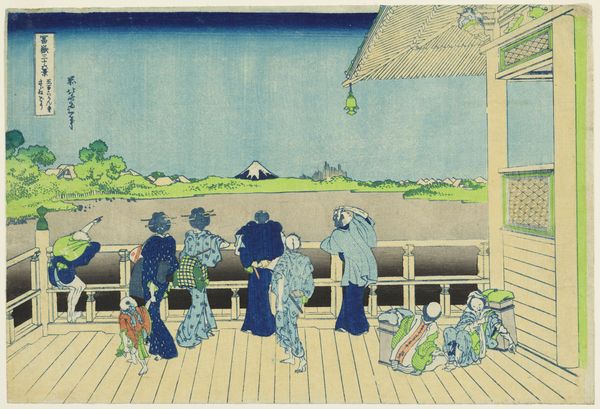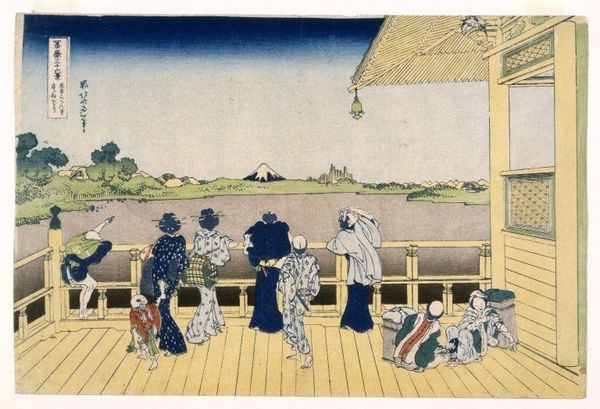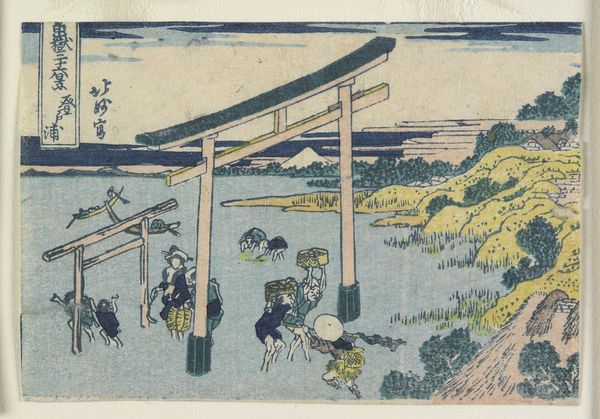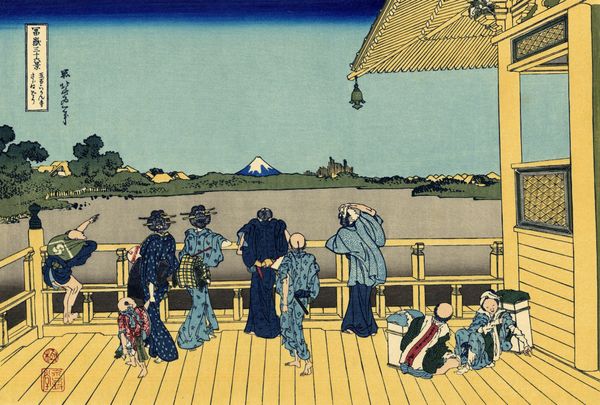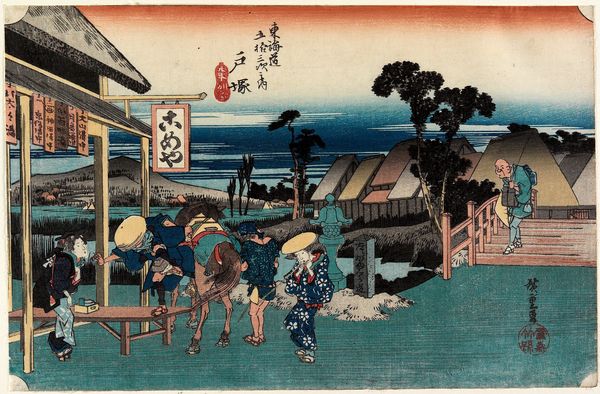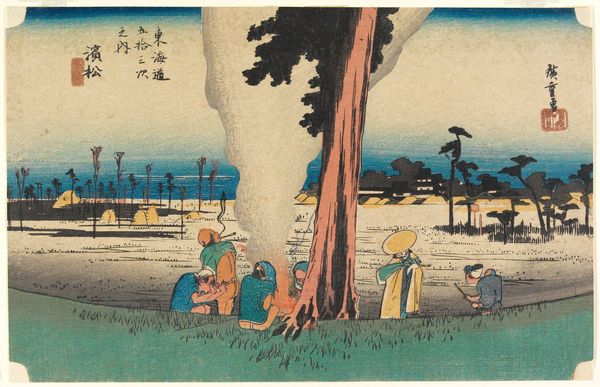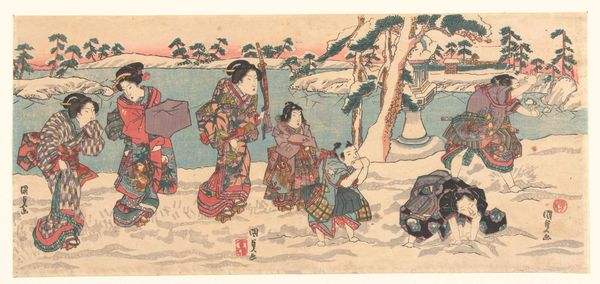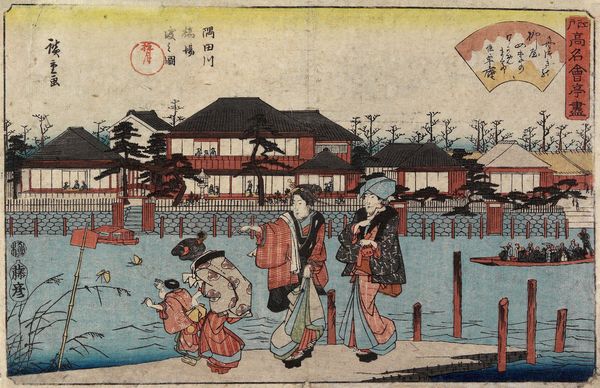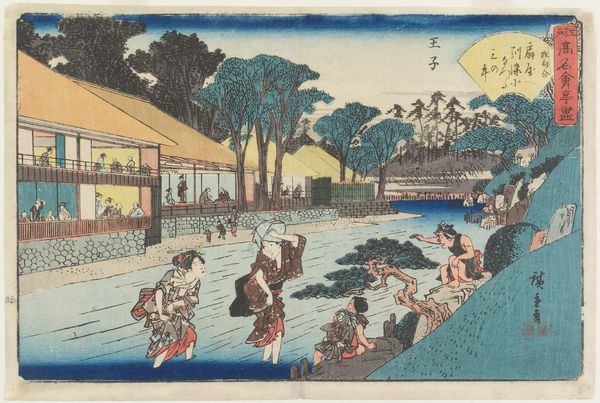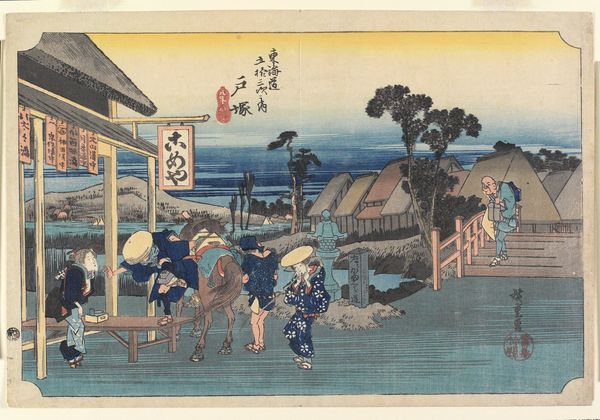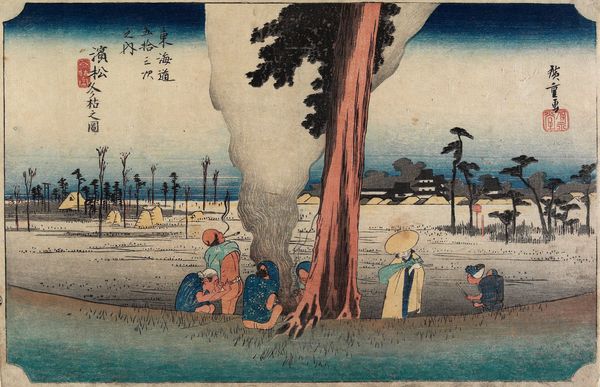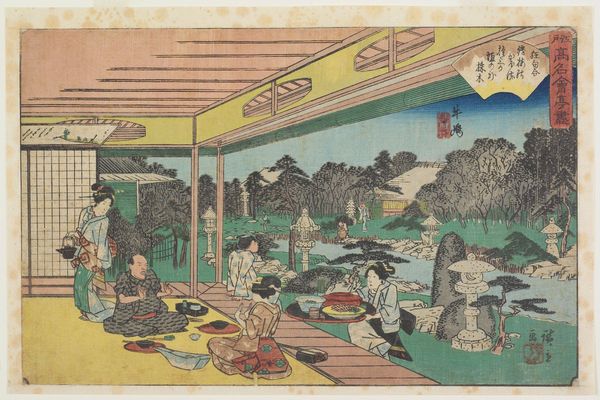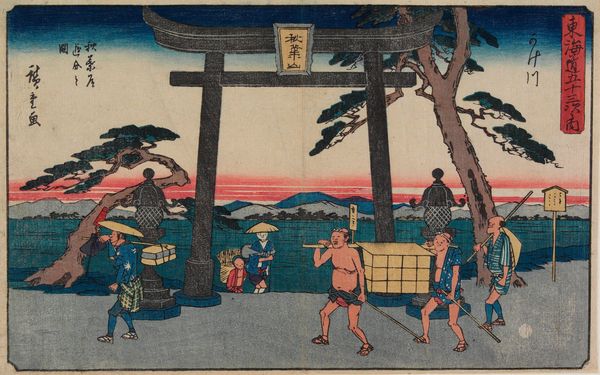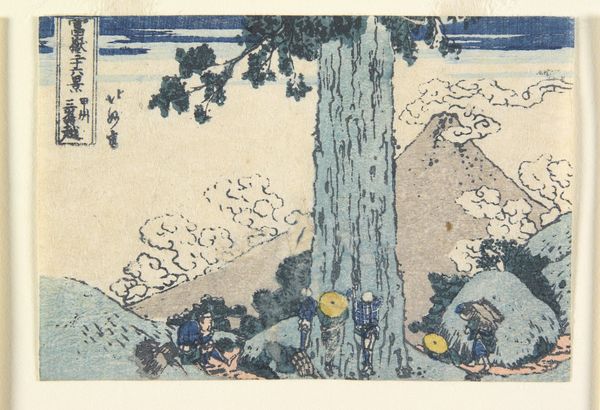
Sazai Hall of the Temple of the Five Hundred Arhats c. 1834 - 1837
0:00
0:00
print, ink, woodblock-print
# print
#
landscape
#
ukiyo-e
#
ink
#
woodblock-print
#
genre-painting
Dimensions: 3 1/8 × 4 5/8 in. (8 × 11.7 cm) (image, sheet, yatsugiriban)
Copyright: Public Domain
This color woodblock print, "Sazai Hall of the Temple of the Five Hundred Arhats," was created around 1830 by Hokumyō. It depicts a group of people standing on a porch, looking out at a lake and Mount Fuji. This image offers insight into the cultural landscape of 19th-century Japan. Temples like the one depicted here were not only religious sites but also places of social gathering and leisure. We see people from various social strata coming together to enjoy the view. The inclusion of Mount Fuji is also significant. It was a symbol of national identity, frequently featured in art, literature, and popular culture. The print reflects the rise of a commercial culture and the growing popularity of travel and leisure activities among the urban population. To truly understand this print, we need to consider the social and institutional contexts in which it was produced and consumed. Art historical research can illuminate the complex interplay of religion, nationalism, and popular culture in 19th-century Japan.
Comments
No comments
Be the first to comment and join the conversation on the ultimate creative platform.
